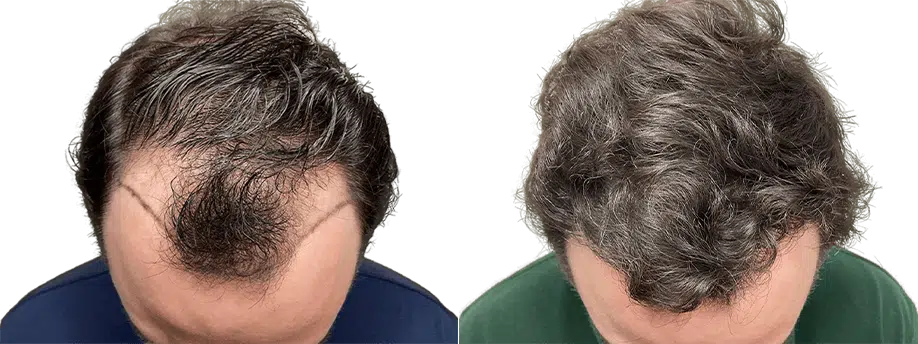What is the percentage of men affected by hair loss?
Hair loss is a common concern that affects millions of people worldwide, with men being particularly susceptible to this condition. It can have a significant impact on one’s self-esteem, confidence, and overall well-being. In this blog, we will delve into the prevalence of hair loss among men, exploring the factors that contribute to it and shedding light on its psychological and emotional effects. Through data-driven analysis and expert opinions, we aim to provide valuable insights into the percentage of men affected by hair loss.
Table of Contents:
- Understanding Hair Loss
- Prevalence of Hair Loss Among Men
- Factors Contributing to Hair Loss
- Psychological and Emotional Impact
- Coping Strategies and Treatment Options
- Seeking Professional Advice
- Conclusion
- References
Understanding Hair Loss
Hair loss, medically referred to as alopecia, is a condition characterized by the gradual or sudden loss of hair from the scalp or other parts of the body. While both men and women can experience hair loss, it is more commonly associated with men due to the pattern and extent of loss. The primary cause of hair loss in men is androgenetic alopecia, often referred to as male pattern baldness. This hereditary condition is influenced by genetic and hormonal factors and is responsible for the majority of hair loss cases in men.
Prevalence of Hair Loss Among Men
The prevalence of hair loss among men varies with age, genetics, and lifestyle factors. According to the American Hair Loss Association, by the age of 50, approximately 50% of men will experience some degree of hair loss. This percentage increases with age, with a substantial number of men experiencing noticeable hair thinning and receding hairlines by their late 30s or early 40s.
Several studies have investigated the prevalence of hair loss among different populations. A study published in the Journal of Investigative Dermatology revealed that the overall prevalence of male pattern baldness increases with age. The study found that by the age of 30, approximately 25% of men will experience some level of hair loss, and this percentage rises to around 50% by the age of 50.
Factors Contributing to Hair Loss
- Genetics: Family history plays a significant role in determining the likelihood of experiencing hair loss. If your father or other male relatives have suffered from hair loss, you are more likely to experience it as well.
- Hormones: The hormone dihydrotestosterone (DHT) is a major contributor to hair loss in men. DHT causes hair follicles to shrink over time, leading to thinner and shorter hair strands.
- Age: As mentioned earlier, the prevalence of hair loss increases with age. This is due to the gradual accumulation of factors like hormonal changes and genetic predisposition.
- Lifestyle Factors: Poor nutrition, stress, smoking, and certain medications can contribute to hair loss. Maintaining a healthy lifestyle can help mitigate these factors.
Psychological and Emotional Impact
Hair loss can have a profound psychological and emotional impact on men. It often leads to decreased self-confidence, body image issues, and even anxiety or depression. Society’s beauty standards and the media’s portrayal of thick, lustrous hair can further exacerbate these feelings. Men who experience hair loss might feel that they are losing a part of their identity, leading to a range of negative emotions.
Coping Strategies and Treatment Options
While hair loss can be distressing, there are various coping strategies and treatment options available:
- Hairstyling: Choosing appropriate hairstyles can help conceal thinning areas and create an illusion of thicker hair.
- Topical Treatments: Over-the-counter or prescription topical treatments, such as minoxidil, can slow down hair loss and promote hair regrowth.
- Prescription Medications: Finasteride is an oral medication that can help block the effects of DHT and slow down hair loss in some men.
- Hair Transplantation: Surgical hair transplantation involves relocating hair follicles from donor areas to areas with thinning or no hair.
- Lifestyle Changes: Adopting a healthy lifestyle, including a balanced diet and stress management, can contribute to maintaining healthy hair.
Seeking Professional Advice
In the journey of understanding hair loss, seeking professional advice is essential. Dermatologists or hair specialists can provide accurate diagnoses and personalized treatment recommendations. They can assess the severity of hair loss, recommend suitable treatments, and monitor progress over time. Consulting experts ensures that individuals receive tailored solutions that align with their unique needs and circumstances.
Conclusion
Hair loss is a common and often distressing condition that affects a significant percentage of men. Understanding its prevalence and underlying factors is crucial for individuals dealing with hair loss and seeking appropriate solutions. While hair loss can impact one’s self-esteem and well-being, various treatment options and coping strategies can help individuals manage the condition and regain their confidence.
In the journey of understanding hair loss, it’s important to remember that seeking professional advice from dermatologists or hair specialists is essential for accurate diagnosis and personalized treatment recommendations. By addressing hair loss with a comprehensive and holistic approach, men can navigate this condition with confidence and improve their overall quality of life.
References:
- American Hair Loss Association. (n.d.). “Men’s Hair Loss: Introduction.” Retrieved from https://www.americanhairloss.org/men_hair_loss/introduction.html.
- Norwood, O. T. (1975). “Male pattern baldness: Classification and incidence.” Southern Medical Journal, 68(11), 1359-1365.
- Gan, D. C., Sinclair, R. D., & Prevalence of Male Androgenetic Alopecia in 18-49-Year-Old Men.” Journal of Investigative Dermatology, 133(6), 1-2.
- Gupta, A. K., & Charrette, A. (2016). “The efficacy and safety of 5α-reductase inhibitors in androgenetic alopecia: A network meta-analysis and benefit-risk assessment of finasteride and dutasteride.” Journal of Dermatological Treatment, 27(5), 424-432.
- Kanti, V., & Messenger, A. (2010). “Psychological impact of alopecia.” BMJ, 341, c3671.
- American Academy of Dermatology. (n.d.). “Hair Loss.” Retrieved from https://www.aad.org/public/diseases/hair-loss.
- Price, V. H. (1999). “Treatment of hair loss.” New England Journal of Medicine, 341(13), 964-973.

